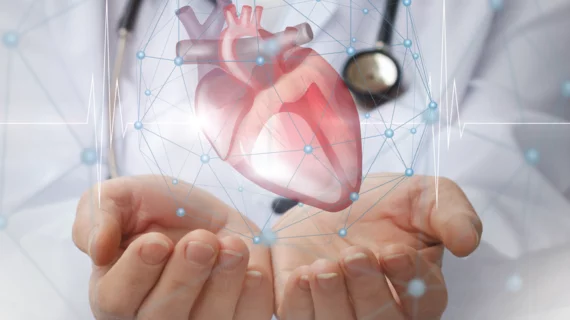What CT scans, mammograms can reveal about a patient’s heart health
CT scans can reveal valuable information about a patient’s heart health, even if the scan was not specifically ordered for that purpose. According to findings to be presented at the American College of Cardiology’s 68th Annual Scientific Session (ACC.19), however, radiologists do not always include heart-related findings in their reports.
“This is essentially free information because the patients are undergoing the CT scans anyway, and we’d like to see it reported more frequently,” Matthew Hooks, MD, a resident physician at the University of Minnesota in Minneapolis and the study’s lead author, said in a prepared statement. “It would be particularly helpful to know if a patient has evidence of early coronary artery disease (CAD) before starting cancer treatment that can potentially harm the heart.”
Cancer therapies can impact a patient’s heart in different ways, according to the researchers. When patients have CAD before they begin cancer treatment, for instance, it could lead to heart failure for the patient. And if the patient has high coronary artery calcium (CAC), noting this finding and telling them to take aspirin or statins could help the patient’s health.
“As cancer treatments have improved and more patients are surviving cancer, we have become more aware of how these therapies might affect patients’ heart health in the long term,” Hooks said in the same statement. “We hope to find out whether we can use CAC as a predictive tool to identify patients who may have poor cardiac outcomes and potentially guide the type of chemotherapy they get or guide whether preventative measures should be implemented prior to starting chemotherapy.”
The team explored a sample of more than 1,000 patients undergoing cancer treatment. All patients underwent a CT scan before treatment, revealing 35 percent had CAC, but that CAC was only noted in the radiology report approximately half the time.
Mammograms show similar potential
Another study to be presented at ACC.19 found mammograms can assess calcification of the arteries in the breast. This “could be a useful marker” to find women at a higher risk for CAD, according to the statement.
That study, from lead author Rajendra Patel, MD, and colleagues, was conducted at Navicent Health/Mercer University of Medicine in Macon, Georgia. Researchers explored data from 1,150 women and found that patients with calcification of the arteries in the breast were 53 percent more likely to have CAD..
Hooks is scheduled to present at ACC.19 on Monday, March 18. Patel is scheduled to present on Sunday, March 17.

